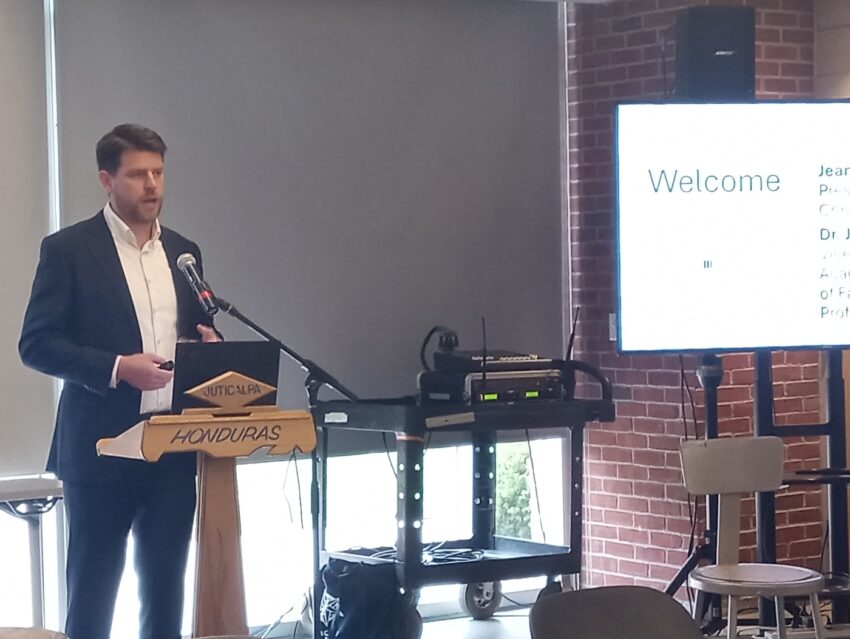History professors at Trinity Christian College are teaming up with community leaders to learn how past problems have challenged struggling areas and what can be done to uplift them. Their work is taking place even as the college in Palos Heights is facing closure at the end of the school year because the educators are hoping to carry on the college’s tradition of helping the world around them. It’s work that’s already paying dividends. LoLita Canady, president of the Rosemoor Community Association, who was born in nearby Roseland, said knowing the history of disinvested areas is a step toward creating a vision of “what the community should look like.” “Knowing something like this is valuable for the community to understand,” she said, “how these ecosystems work and change some of the devastation that’s happened.” Canady was just one of the panelists at the recent “History for Community Organizing” talk at Trinity. Also participating were History Department chair David Brodnax Sr., The Learning Tree founder De’Amon Harges and Trinity assistant history professor Sky Michael Johnston, who organized the event and moderated the discussion. “The idea is that if we all get together, historians can learn from the perspective of civic leaders of Chicago what would be helpful for them to know from historians,” Johnston said. “I would say the ultimate goal would be to have these valuable resources available to the next generation of civic leaders and model collaboration.” While Johnston pointed out the discussions were only a first step, he explained how they might eventually lead to change. He said people recognize Michigan Avenue in downtown Chicago as The Magnificent Mile, but the stretch of Michigan Avenue in Roseland and Rosemoor was also once bustling. That historical image can be “a beautiful vision here for bringing that back,” Johnston said. Brodnax, the history department chair, said recognizing the history and reasons behind a community’s struggles could eventually pave the way for improvement. He cited Evanston, where restrictive zoning or “redlining,” restricted home financing and availability to people of color. Opening a window on that history led to Evanston officials offering financial help for Black people and their direct descendants who had experienced those restrictions. “It led to a policy change that addresses a previous wrong,” said Brodnax. He also pointed to how historians and community organizers could work together. “Historians are not always directly involved in community problem solving, while community organizers are not always directly involved in studying how the past helped create present issues that they are trying to address. In spite of this, many historians have a deep love and concern for the communities that we study,” Brodnax said. “And many community organizers have a personal interest in the history of the places that they serve. For all these reasons, it makes sense that the two groups would share their knowledge and insights to take part in the common goal of community uplift.” Harges, who was community convener at Trinity’s Center for Transformative Neighborhoods, said the college had recognized the need to diversify and make education more affordable by previously cutting the tuition by 40% and reaching out to lower income communities on the south side. “I went out into those communities and found people who were agents and cared about bettering their communities through education,” he said, adding Canady was one of them. “It’s identifying gifts and dreams of people in these communities.” The conversation could carry on, even after the college shuts down. Johnston said he has applied for a National Endowment for the Humanities Humanities Initiatives at Colleges and Universities grant. If the grant comes through, a panel of eight historians would meet next summer with civic leaders and community organizers in Chicago, said Johnston. The panel would also design and write six course plans, a peer-reviewed journal article and present their findings about the project at the American Historical Association in January of 2028. Janice Neumann is a freelance reporter for the Daily Southtown.
https://www.chicagotribune.com/2025/11/26/trinity-christian-college-history-uplift/
